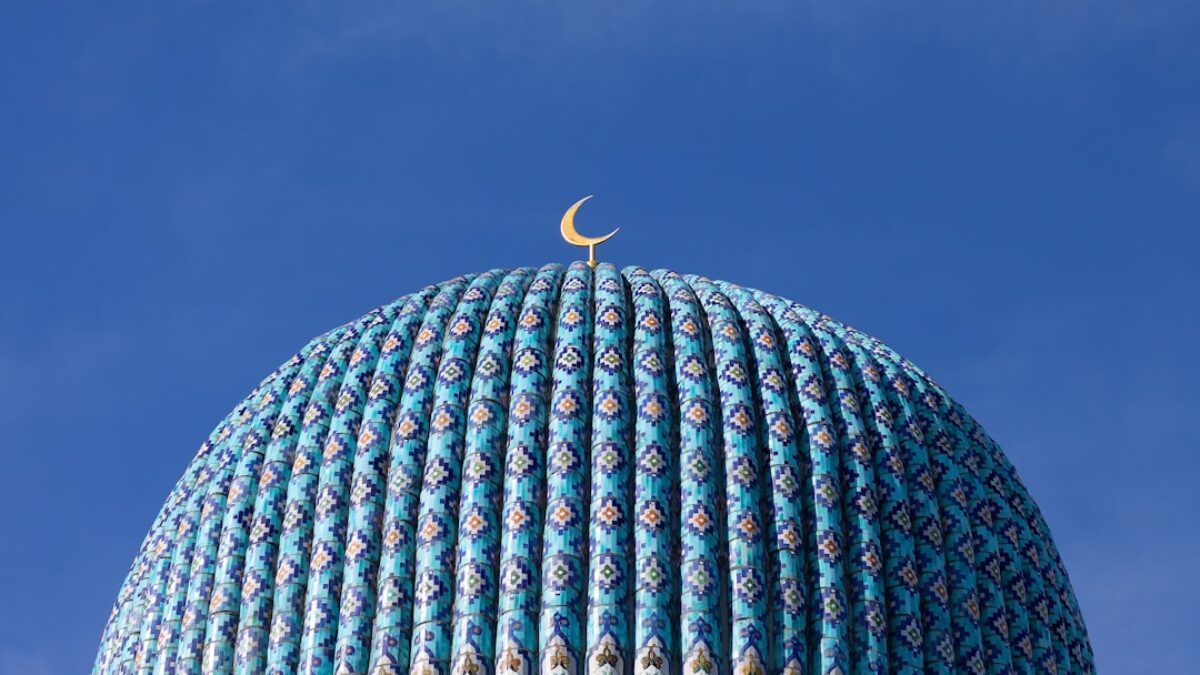Tawheed, the uncompromising belief in the Oneness of Allah, is the heartbeat of Islam. Every verse of the Qur’an, every prophetic teaching, and every act of worship ultimately points back to this single truth. Without Tawheed, the entire structure of faith collapses into confusion and spiritual loss. This article serves as a comprehensive guide—rooted in the Qur’an and Sunnah—explaining why Tawheed is the core of Islamic faith, how it shapes a Muslim’s life, and what practical steps safeguard this doctrine in a world teeming with distractions and deviations.
Understanding Tawheed
To grasp Tawheed fully, one must journey beyond a mere dictionary definition. Linguistically, Tawheed derives from the Arabic root w-ḥ-d, meaning “to make one” or “to unify.” Technically, it denotes the absolute Oneness and Uniqueness of Allah in His essence, names, attributes, and exclusive right to worship. Scholars classify Tawheed into three interlocking dimensions:
Tawheed ar-Rububiyyah – Lordship
This dimension affirms that Allah alone is the Creator, Sustainer, Owner, and Disposer of everything in existence. Every heartbeat, galaxy, and subatomic particle operates under His sovereign decree. Recognizing this nurtures humility and reliance (tawakkul).
Tawheed al-Uluhiyyah – Worship
Often called Tawheed al-Ibadah, this dimension declares that all worship—prayer, sacrifice, hope, fear, love—belongs solely to Allah. Even a sincere smile for His sake is worship when directed purely to Him.
Tawheed al-Asma’ wa-Sifat – Names and Attributes
Here we affirm whatever names and attributes Allah has affirmed for Himself—without distortion, denial, anthropomorphism, or likening them to creation. This safeguards the transcendent majesty of Allah while allowing meaningful relationship with Him.
Key Components of Tawheed
Understanding Tawheed demands precision. Let us break down its components in a comparative table, then explore each in depth.
| Component | Core Statement | Common Pitfall | Corrective Remedy |
|---|---|---|---|
| Rububiyyah | “Allah alone is Lord.” | Attributing outcomes to “nature,” “luck,” or intermediaries. | Recite Qur’an 6:102 daily: “That is Allah, your Lord; there is no deity except Him.” |
| Uluhiyyah | “Allah alone deserves worship.” | Seeking aid from saints, amulets, or superstitions. | Renew intention before every prayer: “I intend to pray solely for Allah.” |
| Asma’ wa-Sifat | “Allah’s names/attributes are perfect & unique.” | Distortion (e.g., claiming Allah “repents” like humans) or denial (e.g., negating His mercy). | Study authentic texts with reputable scholars; avoid philosophical speculation. |
Theological Bedrock: Qur’anic Emphasis
The Qur’an dedicates over one-third of its verses to Tawheed in some form. Surah al-Ikhlas, a mere four lines, is described by the Prophet ﷺ as “equivalent to one-third of the Qur’an” (Bukhari). Its verses dismantle every form of shirk (associating partners with Allah):
Say: He is Allah, [Who is] One, Allah, the Eternal Refuge. He neither begets nor is born, nor is there to Him any equivalent. – Qur’an 112:1-4
Prophetic Methodology
The Prophet Muhammad ﷺ devoted the first thirteen years of his mission in Makkah almost exclusively to clarifying Tawheed. The Five Pillars, criminal law, and societal regulations came only after this foundation was firm. He taught:
- Du‘a (supplication) is the essence of worship; turning to anyone else is major shirk.
- Consciousness (taqwa) flows from knowing Allah watches us at every moment.
- Love and fear of Allah must coexist, both anchored in Tawheed.
Benefits and Importance
Embracing Tawheed is not merely doctrinal; it unleashes cascading benefits across personal, communal, and cosmic realms.
1. Spiritual Tranquility
When the heart fully recognizes Allah’s Oneness, it finds irreplaceable serenity. The Qur’an promises:
Those who have believed and whose hearts are assured by the remembrance of Allah. Unquestionably, by the remembrance of Allah hearts are assured. – Qur’an 13:28
2. Intellectual Clarity
Tawheed dissolves cognitive dissonance. Life’s trials are not random; they are purposeful acts of a Wise Creator. This clarity fuels patience (sabr) and gratitude (shukr).
3. Moral Transformation
A person grounded in Tawheed fears only Allah’s displeasure. Consequently, honesty persists even when unseen, and kindness extends even to foes, because accountability transcends human surveillance.
4. Social Justice
When all humans stand equally before One Lord, tribalism, racism, and elitism lose divine sanction. Historical examples include:
- The Prophet’s Farewell Sermon: “No Arab has superiority over a non-Arab.”
- Caliph ‘Umar’s nightly patrols to ensure no subject feared injustice.
5. Eschatological Salvation
The Qur’an is unequivocal: “Allah does not forgive association with Him, but He forgives what is less than that for whom He wills” (4:48). Thus, Tawheed is the indispensable key to Paradise.
Practical Applications
Knowing Tawheed intellectually is insufficient; it must permeate daily life. Below are actionable strategies drawn from Qur’an, Sunnah, and scholarly insights.
1. Purification of Worship (Tazkiyah)
- Audit daily rituals: Ask, “Who truly benefits from this act?” The answer must always be Allah alone.
- Remove intermediaries: Discard amulets containing unknown inscriptions; replace with authentic du‘as from Qur’an and Sunnah.
- Du‘a list audit: Ensure requests are directed solely to Allah, never to deceased saints or celestial bodies.
2. Financial Transactions
Interest (riba) is prohibited partly because it arrogates Allah’s exclusive right to bless or restrict wealth. Practical steps:
- Opt for Islamic finance products certified by recognized boards.
- Calculate and purge any riba accrued before repentance.
- Pay zakat punctually, recognizing wealth as a trust from Allah.
3. Social Relationships
Parental Obedience Within Limits
Obey parents provided they do not command disobedience to Allah (Qur’an 29:8). Frame respectful refusals around Tawheed: “I cannot attend this mixed gathering because I fear displeasing Allah alone.”
Workplace Ethics
When pressured to falsify reports, respond: “My ultimate Employer is Allah, and He records every transaction.” Such responses often earn respect and dispel coercion.
4. Digital Age Challenges
- Algorithmic Tawheed: Algorithms predict behavior, but cannot decree destiny. Remind yourself daily: “Nothing happens except by Allah’s will.”
- Social Media Ego: Post to please Allah by benefiting others, not to amass likes—a subtle form of shirk in intention.
5. Family Education
Create a “Tawheed Night” once a week. Activities might include:
- Reciting Surah al-Ikhlas together with reflections.
- Storytelling: Prophet Abraham’s destruction of idols (Qur’an 21:51-71).
- Q&A session allowing children to ask “Why does Allah…?” questions without fear.
Frequently Asked Questions
What is the difference between Tawheed and monotheism in other religions?
While Judaism and Christianity claim monotheism, Islamic Tawheed is stricter and more comprehensive. Christianity historically incorporates the Trinity, which Muslims view as compromising pure Oneness. Judaism, though unitarian, has mystical traditions approaching intermediaries (e.g., Metatron). Tawheed rejects any ontological multiplicity, whether in God’s essence, attributes, or worship.
How can I detect hidden shirk in my heart?
Perform a “Hidden Shirk Audit” nightly:
- Intention check: Review one deed—did I seek praise, salary increase, or Allah’s pleasure?
- Emotion check: Is my despair during failure rooted in loss of worldly status or displeasing Allah?
- Du‘a check: Do I rely on “lucky charms” or Qur’anic verses recited with correct belief?
If any trace points to creation over Creator, repent instantly and redirect the act.
Can someone be Muslim without fully understanding Tawheed’s categories? Yes, but with caveats. A lay Muslim testifying “La ilaha illallah” enters Islam, yet remaining ignorant of Tawheed’s details risks inadvertent shirk. Scholars thus encourage gradual yet continuous study. Think of it like driving: one can operate a car without knowing engine mechanics, but ignoring basic dashboard warning lights courts danger.
Is saying “Insha’Allah” enough to protect intentions from shirk? Not inherently. The phrase must accompany a heart that truly relies on Allah. If uttered mechanically while internally banking on personal effort, it becomes lip-service. Pair “Insha’Allah” with contemplation of Qur’an 18:23-24, commanding believers to add “If Allah wills” sincerely.
How do I teach Tawheed to children without making it abstract?
Use concrete analogies:
- One sun versus many lamps—only the sun sustains life. Likewise, only Allah sustains all worlds.
- A remote-controlled toy—pressing buttons (worship) must point to the correct controller (Allah).
Regularly invite children to spot shirk in cartoons or stories, turning critical thinking into an engaging game.
Does modern science support or contradict Tawheed?
Science, by definition, studies secondary causes (laws of physics, biology), but cannot disprove the Primary Cause (Allah). Discoveries like the Big Bang or fine-tuning of universal constants often bolster arguments for divine Oneness, provided scientists avoid reifying natural laws as independent agents.
What if someone was raised in shirk—are they forgivable?
Islamic theology holds that anyone who dies after sincere repentance is forgiven, regardless of prior shirk (Qur’an 39:53). The Prophet’s uncle, though a polytheist most of his life, was promised mitigation due to his defense of Tawheed in moments of clarity. Thus, the door remains open until the final breath.
Conclusion
Tawheed is not a footnote in Islamic creed; it is the very axis upon which the universe rotates. From the microscopic orbit of electrons to the macroscopic swirl of galaxies, every system testifies: “There is no true deity except Allah.” Embracing Tawheed transforms hearts, homes, and societies by anchoring every intention, transaction, and relationship in divine singularity.
























Post Comment